Review of The Fast Diet by Dr Michael Mosley and Mimi Spencer and some rather personal views on the subject.
I have always loved Horizon as one of the best, if not the best, popular science programmes, but lately I’ve moved away from watching so much TV, so I missed Dr Michael Mosley’s programme on high intensity exercise, and more frustratingly, was away for his “Eat, Fast, and Live Longer” programme and neglected to record it.
Luckily I found a Facebook Group trying the 5:2 diet populated (then) mainly by fellow writers and friends, which is how I found the group in the first place. At the time, Michael Mosley’s Horizon programme (which I’d looked for on i-Player but couldn’t find) was on YouTube, so I watched it, feeling somewhat guilty about the violation of copyright. The video was removed shortly after that, which I thought was a shame because it wasn’t just interesting, but ground-breaking, but could understand.
This, I felt, left a huge gap for those of us wanting to know the basis of the science behind the diet, a gap which I am glad to say is filled by this book, amongst others such as Kate Harrison’s e-book, which I reviewed on December 17th on this blog.
The science seemed sound and answered a lot of questions which had occurred to me over the years. The concept is easy: eat 500kcals for 2 days out of seven, then eat ad lib the rest of the week. And the primary motivator for this regime was to improve the internal biochemistry and brain longevity rather than weight loss per se. That aspect is very important, because weight loss is a slow, long business and not terribly motivating day-to-day, and easily overcome by temptation – temptation which can be postponed and indulged in the next day in this “diet”. Physiologically and psychologically this way of eating makes sense to me.
I ordered Mosley and Spencer’s book to see what it was like, even though I don’t think you actually need the book to do the “diet”. Restrict kcals to 500 two days a week, eat ad lib the rest of the time – what could be simpler? I had already lost well over a stone. I didn’t really need the book, but I wanted it.
It’s great. The first part was pretty much a reiteration of the Horizon programme, and therefore of great value to anyone who didn’t see the programme, and of value anyway because although my memory is reasonable, there were things I’d overlooked or forgotten.
One thing I found particularly interesting was the cancer aspect. Nearly 14 years ago now, I was diagnosed with breast cancer, which meant chemotherapy, surgery and radiotherapy. Chemo and radiotherapy work by differentially killing off fast dividing tissues, basically by poison and radiation. The cancer cells are dividing much faster than the normal tissues of the body, so the idea is that those will be killed whilst the normal tissues (and the patient) survive. The dosage and regimen have to find the best balance between being harsh enough to kill the cancer but not so harsh that the body can’t recover, particularly allowing the recovery of naturally fast-growing tissues like the skin, hair, mouth, intestines, and importantly, the immune system. The immune system helps clear up cancer. Too much chemotherapy will adversely affect that. Not enough chemotherapy and some cancer cells survive, fitter and stronger and more resistant to treatment. Anything which improves the survival of normal tissues at the expense of cancer cells is of benefit.
At the time I had read an article in “Peak Performance” about the amino acid glutamate which is used as a food supplement purportedly to ward off over-training syndrome. The article said that there was an increase in white blood cells, boosting the immune system. I thought that must be worth contemplating so I spoke to the pharmacist where I was being treated, the ICRF unit at the Churchill in Oxford, explaining that I wanted to try to use this food supplement to differentially boost my immune system, but my concern was that glutamate might actually act as a growth factor for the tumour cells. I did this for two rounds of chemo, waiting, if I recall correctly, until the Tuesday after Thursday Chemo, then supplementing with ½ tsp in a slurry of milk, I think. (It was disgusting.) I did this just for two or three days – I can’t remember exactly. My reasoning was that I was hopefully boosting the immune system recovery over and above the tumour cell recovery, but I couldn’t be sure. It might have been the other way round; it was an unknown. When it came to my second round of chemo, my white blood cell count was unusually high, so I did the same again with the same result, but the pharmacist had by that time found a paper which suggested that glutamate might (just might) act as a growth factor for tumour cells, so it wasn’t ethical to OK me doing it again. So I didn’t.
If I remember rightly the ultrasound of the tumour showed shrinkage the first two rounds, and I remember saying, “What if all the cancer cells are killed… how will the cancer’s oestrogen receptivity be measured if the cancer cells are all dead when it comes to surgery?” I was told that there was always something left after chemo. The next two rounds saw no further shrinkage and I began to worry that I’d done something damaging to my chances of survival. However, when the tumour was taken out and sent for pathology, it was only the external scaffolding left. There were no live tumour cells left at all, and the clinicians had to go back to the original biopsy to see if it was oestrogen receptive or not, to see if Tamoxifen would be helpful. The medical team seemed surprised and we were all delighted by this response.
Of course, this is just an anecdotal story, and I will never know if taking glutamate was helpful, a hindrance, or had no effect. It might have been chance, luck, or because I was very fit and ate a good diet, or the broccoli I ate, or even the prayers that were said over me. Who knows? I was lucky in that at the ICRF the patient could have a good deal of input into their treatment.
Because of my personal experience I was very interested to read about Nora’s story on page 58. Cancer cells are not subject to the hormonal growth suppression we see in fasting, and she wanted to try fasting during chemo, with her medical team’s support, which they were loath to grant, so Nora did it herself, for the first round of chemo, and recovered well, but the next two rounds she didn’t fast and was sick. The fourth round she fasted and wasn’t sick from it. Currently she is cancer free. (Long may it stay that way.) What struck me was the similarity of our two stories… she using fasting to differentially suppress normal tissue cell division, I using something to boost my immune system, but one major difference was the attitude of the medical teams supporting us. The problem is, it’s not ethical to encourage a patient to try something out of the ordinary.
I also have vague recollections of suggesting it would be great if we could stimulate tumour cell division whilst not stimulating normal cells, just prior to a chemotherapy round, but the person I said this to looked horrified at the thought of stimulating tumour growth. But the faster it’s growing, the more effective the chemo. (That might be a naive oversimplification.)
I think this concept of fasting possibly increasing the efficacy of chemotherapy (and radiotherapy presumably) by slowing down normal cell division is extremely exciting. More research needed, methinks.
In Mosley’s book there is a section on compliance, and I think this is so important. Many diets are fiddly and involve making special meals, or weighing and counting calories, every day. Others cut out a foodstuff or suggest you eat a certain food ad nauseam. This isn’t sustainable long term and people break their diet, which leads to feelings of low self-worth and counterproductive behaviour like binge eating. For some diets which involve supplements, the blame is placed on not taking the (expensive) supplement, rather than realising that the diet is doomed long term. Mosley points out that people who diet often put the weight back on within five years and end up heavier.
This means that people say that dieting makes you fat, and that dieting suppresses your metabolism, and all these other horror stories which are part of the mythology of dieting. There may be a basis if fact – metabolic rate has been measured to drop in low calorie situations as a survival mechanism – but because people are individuals we don’t know what weight they would have been if they hadn’t dieted, and we can’t even look at people who have never dieted and say that they are slim because they haven’t dieted, because it might be that they have the sort of body and behaviour which means they don’t put weight on.
Long term sustainability is vital. I have seen a friend lose an awful lot of weight and then pile it back at an astonishing rate when she stopped dieting (it was rather extreme) and was very hungry all the time. I don’t know how true the following is, having lost a lot of faith in the so-called “facts” about food and nutrition, but our appetite is thought to be geared to food intake to maintain our heaviest weight. This means that if someone were say, fifteen stone and lost weight to their ideal weight of ten stone, when they eat, even though their now ten stone body needs far fewer calories, they will still only feel sated when they have eaten the amount needed for their erstwhile 15 stone body.
This means that it’s far better not to get overweight in the first place, and has been a real concern for me, particularly as I saw it happening before my eyes. I had wondered if hypnotherapy would help retrain the “appestat” the thermostat which naturally regulates the food intake. Now I’m wondering if this will naturally happen with intermittent fasting – people are reporting needing less food than expected the following day and my own appetite is often suppressed after a fast day. Time will tell. I hope so, because never again do I want to be as overweight as I was this summer.
The second part of the book was co-author Mimi Spencer’s experiences, and as a female I found this interesting.
There’s an emphasis on glycaemic index, which is important. Perhaps. As I understand it, the idea behind fasting is to be using up blood sugars and stored sugars (glycogen) such that the pancreas gets a rest from chucking out insulin. Eating, even a small amount, might undermine this, which is why I’m aiming to have all my 500 kcals at once, in the evening, so that I have gone at least 22 hours without food. The other advantage is that when I eat something, it seems to stimulate my appetite, something I would rather avoid. If I do have to eat something, a low GI carb will be better because I shouldn’t get that spike of insulin. Hypothetically. The research is still ongoing with this… spreading the calories out during the day might be fine. My gut feeling though, is that it’s better to postpone it as long as tolerable.
The massive advantage of this diet is that it is flexible, and what works for me might not work for the next person, but their personal strategy might.
One section of the book contains some menu plans for men and women, which apart from inspiring people, make it easy to do, though I haven’t tried any, tending to opt for salad and lean meat or fish, or, at a pinch, a warmed up can of beans (life’s too busy for faffing around).
There were anecdotes from people using the 5:2 approach.
There was a list of calorific values of basic foods.
Reassuringly, there was a list of references at the back. I doubt I’ll have the time to look these up, but at least I feel the science is well researched. There was no bunkum or hocus-pocus, and no faffing around with endless supplements, no hard sell or defensive blathering (which I found irritating in Atkins’ book – like he invented ketosis. I don’t think so – ketosis as a weight loss strategy has been around for longer than the Atkins diet; but I digress). In short, this book is scientifically sound and does not insult the intelligence of the average reader, yet is easy to read and does not dazzle with science, or the case of some diet books, pseudoscience.
Downsides to this book? There was mention of headaches during fasting, which several people in the FB group have commented on, but unless it was in the inspirational anecdotes (which I haven’t read) there was no mention of the other problem some of us have suffered from; constipation. Perhaps nobody has had the indelicacy to mention it to Dr Mosley. I now break my fast the next day with oat bran porridge, and to ensure that this is well cooked, I soak the oat bran in skimmed milk for an hour or more before I cook it in the microwave. This has been… encouraging.
I recommend both the book and the eating approach.
I found some typos. As an Indie author who has suffered remarks about typos in reviews (when really there were very few), I find this very pleasing.

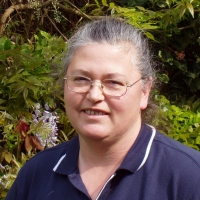



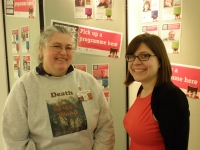
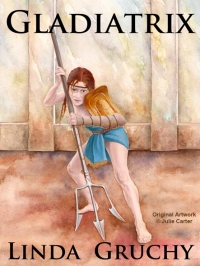


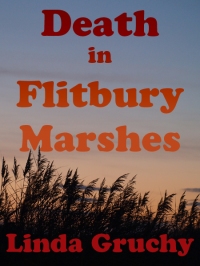
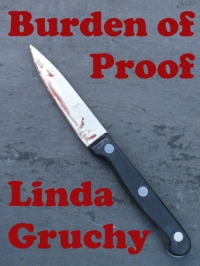

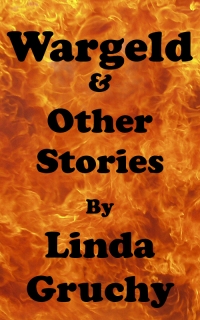

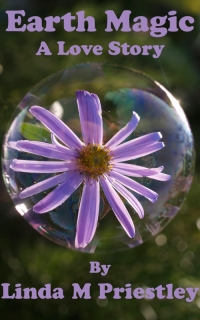

Pingback: What Is The 5:2 | Tales Of A Diet
I have done fast days for 3 years after losing 6 stone. At first had trouble in keepin wight down, then made up this way that worked for me, what i have always called good and naughty days.i used to wonder how good or bad this was only to find my diet is the best and should have patened it.As i have continually been on this way of eatin for 3 years if i can be of any help i am willin BethanAndAlec@aol.com